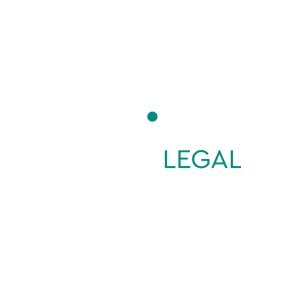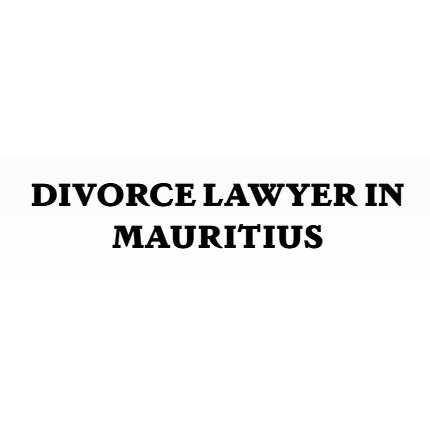Best Sanctions & Export Controls Lawyers in Mauritius
Share your needs with us, get contacted by law firms.
Free. Takes 2 min.
Or refine your search by selecting a city:
List of the best lawyers in Mauritius
About Sanctions & Export Controls Law in Mauritius
Sanctions and export controls are crucial legal frameworks designed to regulate and monitor the movement of goods, technologies, and financial resources out of and into Mauritius. These laws are grounded in the country's obligations to the international community, particularly the United Nations’ Security Council Resolutions and various international treaties. Mauritius implements these measures to prevent the proliferation of weapons, combat terrorism financing, comply with global trade restrictions, and safeguard its national security. Sanctions can be imposed on specific countries, individuals, or entities, while export controls govern the export of sensitive items such as dual-use goods, military equipment, and certain technologies.
Why You May Need a Lawyer
Navigating sanctions and export controls laws in Mauritius can be complex, especially for businesses involved in international trade or financial transactions. Legal assistance is crucial in a range of scenarios, including:
- Determining the legality of trading goods or services with sanctioned countries or persons.
- Obtaining the necessary licenses for the export or re-export of controlled goods, software, or technology.
- Dealing with investigations or enforcement actions by regulatory authorities related to suspected breaches of sanctions or export controls.
- Implementing compliance programs and staff training to avoid unintentional violations.
- Assessing sanctions risks in mergers, acquisitions, or investment transactions.
- Challenging the inclusion of a person or business on a sanctions list.
- Seeking guidance on the rapidly changing landscape of international sanctions regimes.
- Protecting corporate reputation in the event of inadvertent non-compliance.
Local Laws Overview
Mauritius has developed a robust legal and regulatory framework for sanctions and export controls that reflects its international commitments and national interests. Key elements include:
- The United Nations (Financial Prohibitions, Arms Embargo and Travel Ban) Sanctions Act 2019 implements UN Security Council sanctions in Mauritius, including asset freezes and travel bans.
- The Financial Intelligence and Anti-Money Laundering Act 2002, as amended, addresses issues related to terrorism financing and imposes obligations for ongoing due diligence and reporting suspicious transactions.
- The Customs Act 1988 and its regulations provide the statutory base for the control and licensing of exports and imports, including prohibited and restricted goods.
- Export of dual-use items and sensitive technologies is subject to controls, and certain shipments may require licensing from regulatory authorities such as the Mauritius Revenue Authority or relevant ministries.
- Non-compliance with sanctions or export controls in Mauritius can lead to serious civil or criminal penalties, including heavy fines and imprisonment, along with corporate sanctions and reputational risks.
It is important for businesses and individuals involved in cross-border activities to understand which goods, services, and parties are subject to restrictions, as well as to keep abreast of updates to legislation and international sanctions lists.
Frequently Asked Questions
What are sanctions and export controls?
Sanctions are prohibitive or restrictive measures imposed on countries, organizations, or individuals, usually for reasons related to international peace, security, or human rights. Export controls are regulations that restrict or require authorization for the cross-border movement of certain goods, technology, or information, often to prevent proliferation or safeguard national interests.
Who enforces sanctions and export controls in Mauritius?
The enforcement of sanctions and export controls in Mauritius primarily involves the Ministry of Foreign Affairs, the Mauritius Revenue Authority, and the Financial Intelligence Unit, each playing a specific role in overseeing compliance and investigating breaches.
Do all exports from Mauritius require government approval?
Not all exports require approval, but certain goods, especially those on controlled or restricted lists, will need specific licenses. This includes dual-use items, military-grade goods, and products destined for sanctioned countries or individuals.
What are dual-use goods?
Dual-use goods are items that have both civilian and military applications. They are often subject to tighter export controls to prevent misuse or diversion to prohibited end-users.
What could happen if I violate sanctions or export controls in Mauritius?
Violations can result in significant penalties, including fines, imprisonment, and seizure of goods. Your business could also face bans on exporting or importing, and your reputation could be severely damaged.
How do I know if my business needs to comply with sanctions laws?
If your business engages in international trade, finance, or deals with foreign partners, you will likely need to comply with sanctions and export controls. Regularly checking relevant legislation and lists is essential for compliance.
Can I apply for a license to export restricted goods?
Yes, you can apply for an export license through the Mauritius Revenue Authority or the relevant ministry, depending on the type of goods. Applicants must provide detailed information and may need to meet specific conditions.
Are there exceptions to sanctions in Mauritius?
Certain humanitarian exceptions may apply, for example, permits to export medicines or food to a sanctioned jurisdiction in line with international law. Each case is evaluated individually, and a license is usually required.
How often do sanctions and export controls change?
Sanctions regimes and export control lists can be updated frequently, especially in response to developments in international relations or UN Security Council Resolutions. It's important to keep up to date through official sources or seek legal advice for recent updates.
Where can I check if a person or entity is subject to sanctions in Mauritius?
Lists of sanctioned persons or entities are published by the authorities, such as the Ministry of Foreign Affairs or the Financial Intelligence Unit. These lists are updated regularly and are publicly accessible.
Additional Resources
For more support and authoritative information regarding sanctions and export controls in Mauritius, consider the following:
- Ministry of Foreign Affairs, Regional Integration and International Trade - Responsible for implementing international sanctions regimes.
- Mauritius Revenue Authority - Handles export licensing and customs controls.
- Financial Intelligence Unit - Monitors suspicious transactions and terrorist financing activities.
- Bank of Mauritius - Issues guidelines for the financial sector on compliance with sanctions.
- Chamber of Commerce and Industry - Offers compliance advice to businesses engaging in foreign trade.
Next Steps
If you need legal guidance regarding sanctions or export controls in Mauritius, consider the following steps:
- Identify any current or upcoming transactions that may fall under sanctions or export controls regulation.
- Gather all relevant documents, including contracts, shipment records, and communication with foreign parties.
- Seek advice from a qualified lawyer specializing in sanctions and export controls in Mauritius.
- Work with your lawyer to assess your compliance program and develop policies to manage sanctions risks.
- If under investigation or facing enforcement action, provide your legal counsel with full and accurate information promptly.
- Keep up to date with changes in the regulatory landscape to ensure ongoing compliance in your operations.
Early legal intervention can protect your business interests, avoid costly penalties, and ensure your activities align with both local and international laws.
Lawzana helps you find the best lawyers and law firms in Mauritius through a curated and pre-screened list of qualified legal professionals. Our platform offers rankings and detailed profiles of attorneys and law firms, allowing you to compare based on practice areas, including Sanctions & Export Controls, experience, and client feedback.
Each profile includes a description of the firm's areas of practice, client reviews, team members and partners, year of establishment, spoken languages, office locations, contact information, social media presence, and any published articles or resources. Most firms on our platform speak English and are experienced in both local and international legal matters.
Get a quote from top-rated law firms in Mauritius — quickly, securely, and without unnecessary hassle.
Disclaimer:
The information provided on this page is for general informational purposes only and does not constitute legal advice. While we strive to ensure the accuracy and relevance of the content, legal information may change over time, and interpretations of the law can vary. You should always consult with a qualified legal professional for advice specific to your situation.
We disclaim all liability for actions taken or not taken based on the content of this page. If you believe any information is incorrect or outdated, please contact us, and we will review and update it where appropriate.
Browse sanctions & export controls law firms by city in Mauritius
Refine your search by selecting a city.

















